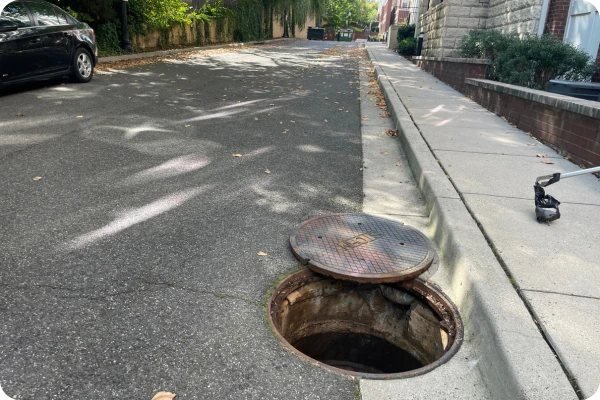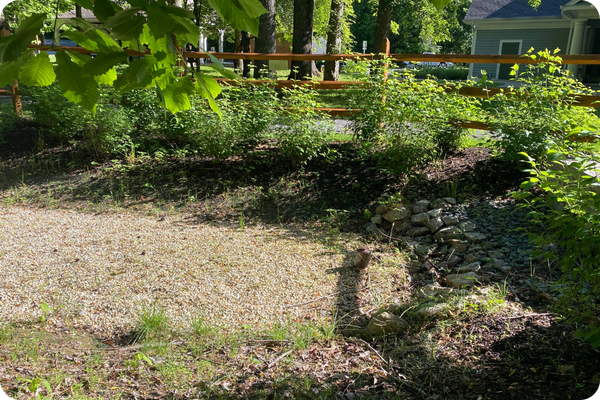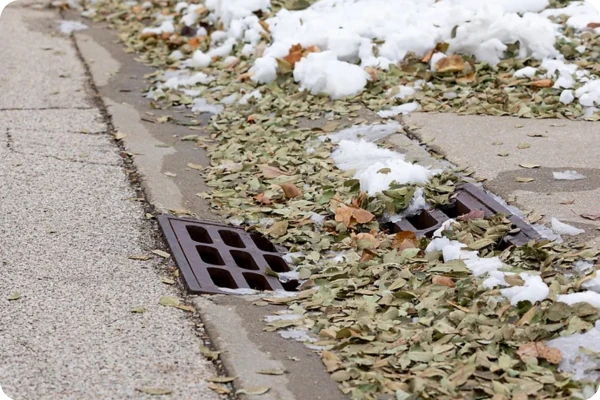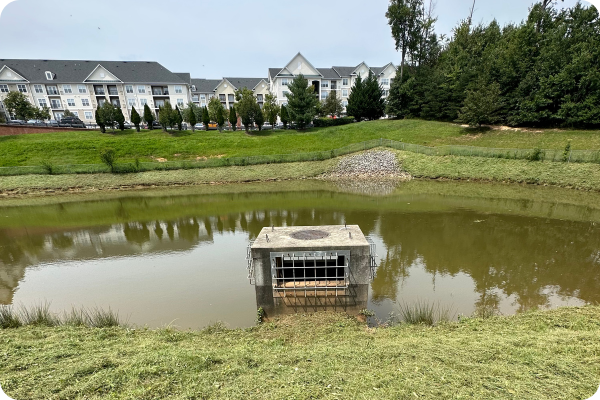As urban landscapes grow, managing stormwater efficiently has become increasingly important. Underground stormwater facilities are an innovative solution to managing runoff while maximizing surface space. These systems not only help prevent flooding but also contribute to environmental protection. In this post, we’ll explore the different types of underground stormwater facilities and provide guidance on maintaining them effectively.

What Are Underground Stormwater Facilities?
Underground stormwater facilities are engineered systems designed to manage runoff from impervious surfaces like parking lots, roads, and rooftops. By storing or treating water below ground, these systems reduce the risk of flooding, protect water quality, and help properties meet regulatory requirements without sacrificing valuable land.
Contact iSTORMWATER to discuss your property’s specific stormwater facilities. (410) 231-3455
Types of Underground Stormwater Facilities
Underground Detention Facilities
These systems temporarily store runoff and release it slowly over time, reducing peak flow rates. They typically consist of large pipes, concrete vaults, or modular tanks and are ideal for controlling flooding in urban areas.
Underground Retention Facilities
Unlike detention facilities, retention systems are designed to permanently hold water, allowing it to infiltrate into the ground. This supports groundwater recharge and improves water quality by filtering pollutants naturally.
Sand Filters
Sand filters combine water storage with filtration. Stormwater passes through layers of sand or other media to remove pollutants before being released or infiltrated. These systems are particularly effective for treating runoff from industrial or commercial sites.
Proprietary Treatment Systems
These specialized systems are engineered to target specific pollutants, such as hydrocarbons, heavy metals, or nutrients. Examples include oil-water separators, vortex separators and the Contech StormFilter, which uses replaceable cartridges filled with filtration media like perlite, zeolite, or activated carbon. The modular nature of the StormFilter makes it adaptable to various site conditions, and its focus on pollutant removal makes it a reliable choice for protecting local waterways.
The Benefits of Underground Stormwater Facilities
- Efficient Land Use: By moving stormwater infrastructure below ground, properties can maintain usable space for parking, landscaping, or development.
- Flood Prevention: These systems control runoff during heavy rain, protecting downstream areas from flooding and erosion.
- Regulatory Compliance: Underground systems help properties meet stormwater management requirements imposed by local authorities.
- Environmental Protection: By controlling and treating runoff, these facilities help prevent pollutants from entering waterways.
Maintenance: A Key to Long-Term Performance
Regular maintenance is critical to ensuring the effectiveness and longevity of underground stormwater facilities. Each system type requires tailored care, but general practices include:
- Inspection: Periodically inspect the facility for sediment buildup, blockages, or structural issues. Inspections are especially important after major storms.
- Sediment and Debris Removal: Clear out accumulated materials to maintain the system’s capacity and prevent blockages.
- Cleaning and Repairs: Use hydro-jetting or vacuum equipment to clean pipes and chambers, and address any structural damage promptly.
- Compliance Documentation: Keep detailed records of maintenance activities to meet local regulatory requirements.
Partnering with Professionals
Given the complexity of underground stormwater systems, working with an experienced stormwater management company is essential. Professionals have the expertise and tools to inspect, clean, and repair these systems safely and effectively.
At iSTORMWATER, we specialize in inspections, maintenance, and compliance of all stormwater facilities. Whether you manage a commercial property or oversee infrastructure projects, we’re here to ensure your underground stormwater systems perform at their best.
If your property needs assistance with its underground stormwater facilities, contact iSTORMWATER today to schedule an inspection or learn more about our maintenance services.




